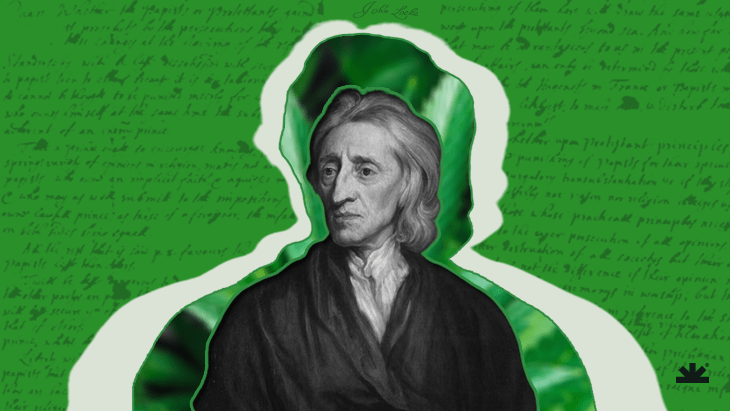
High school students are first introduced to 17th century British philosopher John Locke as the mind who helped mold modern Western philosophy. He was the founder of British empiricism, the so-called “Father of Liberalism,” and one of the most influential thinkers of the age of enlightenment. His theories concerning the separation of Church and State, religious freedom, and liberty influenced everyone from Voltaire to Thomas Jefferson and Alexander Hamilton. By contextualizing his books and essays with modern American political discourse, it is clear that if Locke had lived to turn 388 this year, he would have been an ardent supporter of marijuana legalization.
Locke advocated for an individual’s unalienable right to liberty. The difference between having said liberty or not was the difference between a civil and uncivil society. From a present-day Lockean perspective, the responsible use of marijuana by adults in private would no doubt qualify as an activity that the government should not infringe upon.
Locke opined that everyone has three natural rights.
- Life: everyone is entitled to live.
- Liberty: everyone is entitled to do anything they want to so long as it doesn’t conflict with the first right.
- Estate: everyone is entitled to own all they create or gain through gift or trade so long as it doesn’t conflict with the first two rights.
The private use of cannabis fails to infringe upon these rights. By contrast, when marijuana users are criminally prosecuted for this behavior, more than natural rights are at stake. In fact, the harm often extends beyond the individual, and to their families.
Locke published Two Treatises of Government anonymously in 1689. In it, Locke promoted the idea of natural rights, argued for a government which would protect individual liberties, and rejected the idea of the divine right of kings. Admittedly, rejecting the doctrine that kings derived their authority from God is not particularly relevant to Americans today. However, the rest of Locke’s ideas regarding dangerous governmental interference in the three natural rights, remain painfully contemporary. In section 26 he writes:
“The earth, and all that is therein, is given to men for the support and comfort of their being.”
From Locke’s perspective, an individual has the right to their own body and what they put into their body. When this something comes from the earth itself, your right to that liberty is even more well-established. Notice Locke does not say “The earth, and all that is therein besides plants with psychoactive properties, is given to men for the support and comfort of their being.”
For Locke, if a government stops (or never did) protect natural rights of its citizens, the citizens have the right and maybe even the obligation to demand change. With the help of people like you, we have done that. To date, NORML members have sent over 100,000 messages to Congress in support of the MORE (The Marijuana Opportunity, Reinvestment, and Expungement Act) Act, which ends the federal criminalization of cannabis. House lawmakers are now preparing for a September floor vote on The MORE Act. The forthcoming vote would mark the first time since the passage of the Controlled Substances Act of 1970, which placed cannabis in the same category as heroin as a Schedule I controlled substance, that a Congressional chamber has voted to remove marijuana from its prohibitive classification.















